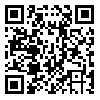Volume 28 - Supplementary
IBJ 2024, 28 - Supplementary: 383-383 |
Back to browse issues page
Download citation:
BibTeX | RIS | EndNote | Medlars | ProCite | Reference Manager | RefWorks
Send citation to:



BibTeX | RIS | EndNote | Medlars | ProCite | Reference Manager | RefWorks
Send citation to:
Abdi Z, Shabani M, Mohammad Fam I, Babamiri M. Identifying Job Requirements for Control Room Positions in the Petrochemical Industry using FJAS Methodology. IBJ 2024; 28 :383-383
URL: http://ibj.pasteur.ac.ir/article-1-4820-en.html
URL: http://ibj.pasteur.ac.ir/article-1-4820-en.html
Abstract:
Introduction: Together with other variables, human factors contribute to the safety of complex systems such as the petrochemical industry. Nevertheless, despite the importance of human factors, there is limited information available on the qualifications required for control room positions. This study aimed to provide detailed information regarding the skill requirements for control room positions in the petrochemical industry.
Methods and Materials: In this cross-sectional and descriptive-analytical study, for the analysis of the ability requirements for control room jobs, three domains were considered, including cognitive, psychomotor, and sensory/perception abilities of the Fleishman Job Analysis Survey (FJAS) method. The target population consisted of 20 experts working as operators in the control room of the petrochemical industry. These individuals were selected from four job groups: leaders, board operators, site operators, and instrument operators, using convenience sampling. Statistical data analysis was conducted using SPSS version 17, employing standard deviation, mean, and frequency as the primary statistical measures.
Results: The FJAS result indicated that 58% of leaders, 18% of site operators, 31% of board operators, and 24% of instrument ability requirements scored high (scores 6 and 7). Except for three abilities among site operators, 21 cognitive abilities were identified as job requirements, and these abilities exhibited a higher level than those in the other two domains.
Conclusion and Discussion: This study indicated that high cognitive abilities are required for control room jobs. Therefore, identifying and improving these abilities should be considered to increase control room operators' performance and prevent accidents.

Methods and Materials: In this cross-sectional and descriptive-analytical study, for the analysis of the ability requirements for control room jobs, three domains were considered, including cognitive, psychomotor, and sensory/perception abilities of the Fleishman Job Analysis Survey (FJAS) method. The target population consisted of 20 experts working as operators in the control room of the petrochemical industry. These individuals were selected from four job groups: leaders, board operators, site operators, and instrument operators, using convenience sampling. Statistical data analysis was conducted using SPSS version 17, employing standard deviation, mean, and frequency as the primary statistical measures.
Results: The FJAS result indicated that 58% of leaders, 18% of site operators, 31% of board operators, and 24% of instrument ability requirements scored high (scores 6 and 7). Except for three abilities among site operators, 21 cognitive abilities were identified as job requirements, and these abilities exhibited a higher level than those in the other two domains.
Conclusion and Discussion: This study indicated that high cognitive abilities are required for control room jobs. Therefore, identifying and improving these abilities should be considered to increase control room operators' performance and prevent accidents.

| Rights and permissions | |
 |
This work is licensed under a Creative Commons Attribution-NonCommercial 4.0 International License. |







.png)
